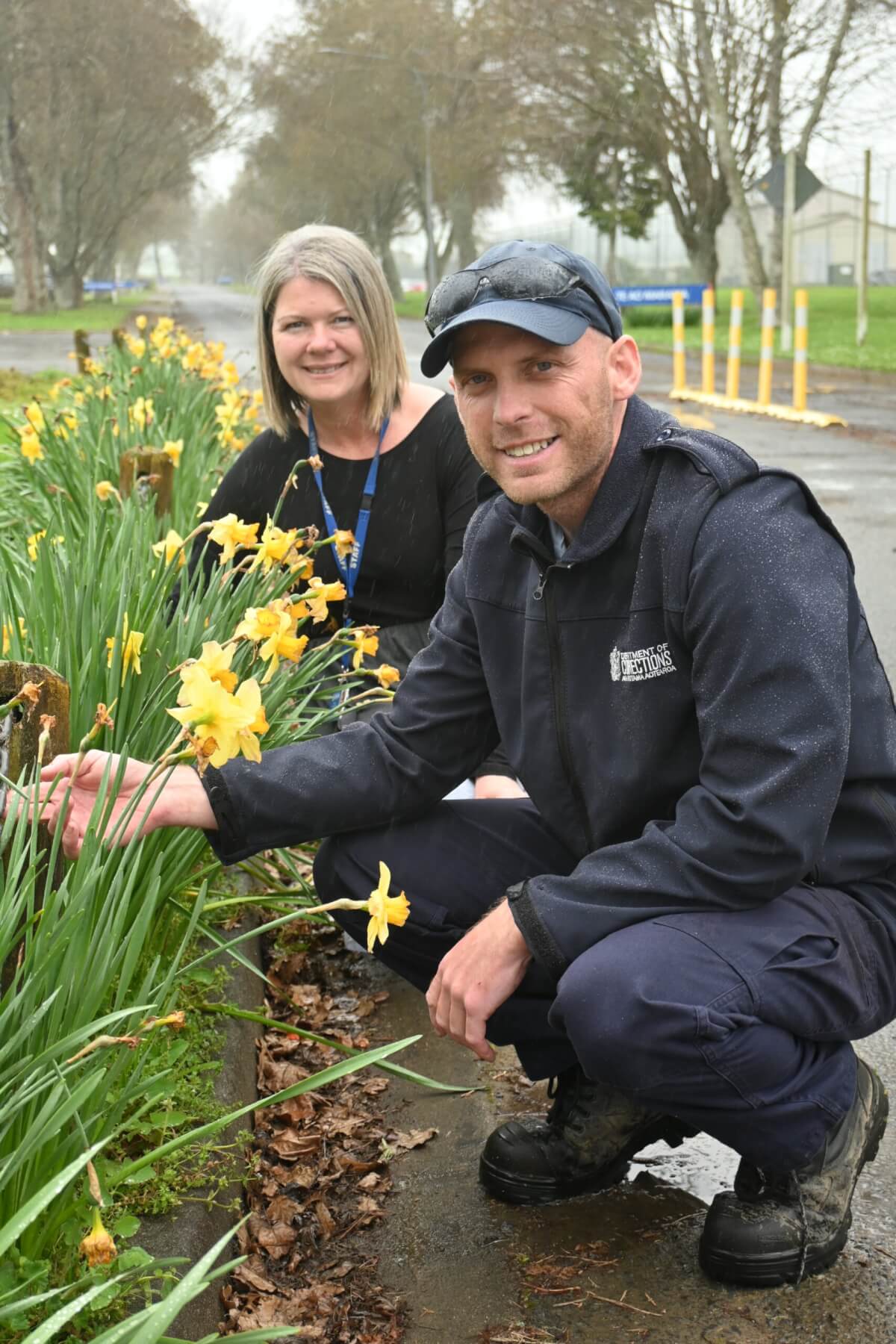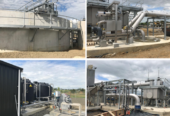Supporters of the Cancer Society’s annual appeal this year, may well have bought a daffodil from Waikeria Prison.
Around 200 bulbs were planted and harvested by prisoners, which were then donated to the street appeal, allowing the community to purchase bunches of flowers.

Morgan Quay and Nadine Lancaster with one of the daffodil plantings at Waikeria Prison, which were donated to the community.
“Just like all of us, most of the men in prison know somebody affected by cancer, so this is about being able to give something back, and it creates meaningful engagement for a positive cause,” said horticulture instructor Morgan Quay.
Waikeria Prison has one of the only horticulture-based remand units in the country.
As soon as men come into prison, they can begin learning work skills.
“They are being trained in an industry, having exposure to the daily structure of work, and are engaged in meaningful work. This breaks down barriers when they come out and supports their reintegration back into the community,’ says Quay.
Daffodil Day is just one of the ways the horticulture unit connects to the local community. Prisoners are growing vegetable seedlings to be donated to the Te Awamutu Food Forest and provide native plants to the Department of Conservation.
“It’s therapeutic work. The men are learning, and they’re engaged in nature,” says volunteer coordinator Nadine Lancaster.
“Connecting the men with the community helps them engage in a pro-social way, and it can be an important step towards making positive change.”
More than 100 volunteers will be out around town tomorrow and Saturday selling daffodils sourced from Waipā growers. Nearly 100,000 stems are needed each year.
Daffodil Day is “mission critical” for the Waikato-Bay of Plenty Cancer Society with cancer diagnoses continuing to climb and a higher proportion of those diagnosed seeking the charity’s support than ever before.

Cancer Society chief executive Helen Carter calls on businesses to help on Daffodil Day. Photo: Mary Anne Gill.
One in three New Zealanders will receive a cancer diagnosis in their lifetime and the society is currently reaching about 25 per cent of these people across the Waikato and Bay of Plenty regions.
Between 2019 and 2022, cancer diagnoses in the Waikato region increased from 2021 to 2257. More people are surviving cancer than ever before, but they often have complex needs – surviving cancer is rarely plain sailing.
While most know the society for the transport and accommodation services they provide to out-of-towners during cancer treatment, an important part of their work happens under the radar, helping people wrangle all the moving parts of their cancer journey, the society said in a media release.
Cancer can throw a real curveball in terms of someone’s normal coping strategies and outlook on life, said chief executive Helen Carter.
“Our teams help people stare down the barrel of their diagnosis and really own it.”








